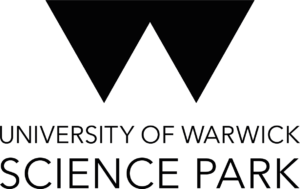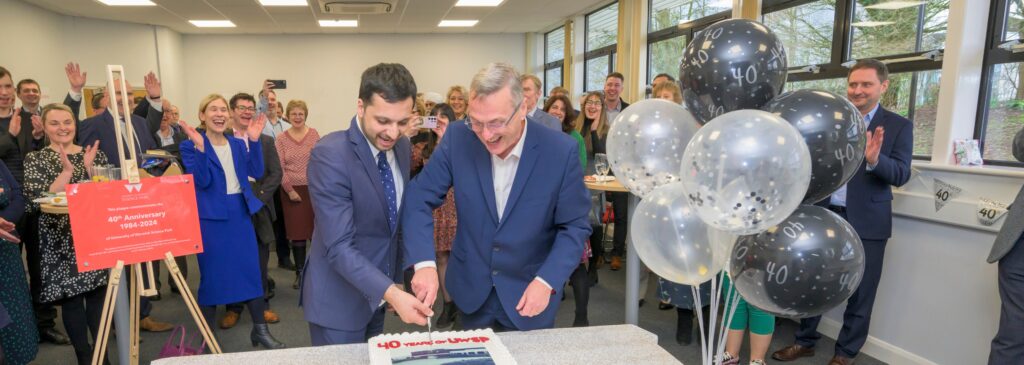The healthcare industry is constantly changing, and the demand for new technologies is noticeable as we are going through one of the most significant transformations in history. Artificial intelligence, otherwise known as AI, is one of the newest technologies to hit the space, as are wearable devices. In summary, new health technology is reshaping how we diagnose, treat, and manage illnesses.
At Warwick Science Park, we understand that it’s essential to explore how these technologies are influencing the sector today and what that means for the future of patient care. We’ll share some of the newest technologies to date and how these will help many of us in the future.
What is new health technology?
When we talk about new health technology, we mean the latest wave of tools and platforms that integrate software, data and connectivity with medical science. These could be AI-driven software as a medical device, telemedicine platforms, wearable biosensors, next-gen diagnostics, robotics, and even 3D bioprinting and organ-on-chip research. Unlike legacy systems, these innovations are built to allow data to flow between systems without human intervention. They are the foundation for more precise and personalised medicine.
Some examples of new health technology:
- AI-powered diagnostics that analyse scans faster than humans
- Telemedicine platforms connecting patients to doctors virtually
- Wearable biosensors that track vital signs
- 3D bioprinting for tissues and organs
It is crucial to understand that these innovations don’t work in isolation. Many combine AI, connectivity, and cloud infrastructure to deliver more comprehensive and effective care.
Recent innovations in new health technology
Healthcare is moving from the hospital to the palm of our hand. Powered by breakthroughs in AI, connectivity, and advanced materials, a new wave of tools is reshaping how we detect illness, deliver care, and even build replacement tissues. From algorithms that spot disease earlier than ever, to virtual clinics and discreet wearables that track our bodies in real time, innovation is closing the gap between prevention and treatment.
Let’s take a look at some of the new health technologies that are now available at our fingertips.
AI-driven diagnostics
Artificial intelligence is revolutionising healthcare by supporting clinicians in diagnosing diseases much earlier and more accurately. The AI in medical diagnostics market is projected to grow at over 22% CAGR by 2030. AI tools are now assisting professionals like radiologists and GPs in detecting cancers, heart conditions, and other chronic illnesses.
Telemedicine and remote care
Telemedicine has grown since the pandemic and continues to do so even now. Platforms now integrate AI, predictive analytics, and remote monitoring to support long-term conditions like heart failure. Trends point towards virtual consultations, telepharmacy, and AR/VR-based patient support.

Wearables and biosensors
From smartwatches to smart implants, wearable technologies are giving patients real-time insights into their health. Continuous glucose monitors, ECG patches, and even noninvasive blood sugar trackers are in development. These tools empower patients to play an active role in their own care.
3D bioprinting and regenerative medicine
Researchers are already using 3D printing to create tissues, bones, and organ models. These advances could one day reduce transplant waiting lists and transform drug testing.
How new health technology is improving care for patients
Better outcomes with AI
- Earlier detection of conditions
- Fewer diagnostic errors
- More personalised treatment plans
Greater accessibility through telemedicine
- Remote consultations reduce travel barriers
- Chronic disease management from home
- Convenience for both patients and clinicians
Empowered patients with wearables
- Real-time health data for self-monitoring
- Early warnings before emergencies
- Engagement in long-term condition management
Challenges and considerations for new technology
While new health technology offers remarkable opportunities and can be truly life-changing for so many, it also raises important questions.
- Equity: Will those without digital access be left behind?
- Regulation: How do we ensure safety and accuracy in new tools?
- Data security: Protecting sensitive patient data remains a top concern.
- Integration: Hospitals need interoperable systems to make full use of these innovations.
Balancing innovation with ethics, access, and safety will be crucial.

The future of new health technology
Looking ahead, we can expect:
- Greater use of digital twins to help clinicians rehearse treatments before a single dose is given,
- Wearables will flow seamlessly into AI-enabled care plans that adapt in real time
- Immersive tools such as AR and VR will bring specialist expertise to the bedside, whether in a hospital or at home
- Stronger partnerships between startups, hospitals, and science parks
However, none of this happens in isolation. The real breakthroughs arrive where startups, hospitals, universities and science parks work side by side to validate ideas, generate evidence and move from pilot to practice.
At Warwick Science Park, we’re building that bridge every day. We support founders with tailored business advice, flexible office space for health technology innovators, and the networking that sparks partnerships with clinicians, researchers and investors.
It’s an exciting frontier, and we see firsthand how science, entrepreneurship and healthcare come together here to make care smarter, faster and more personal. If you’re developing the next wave of new health technology, we’d love to hear from you.
Get in touch with our team of experts and innovators today! Contact us on 024 7632 3000, or email us at [email protected].






